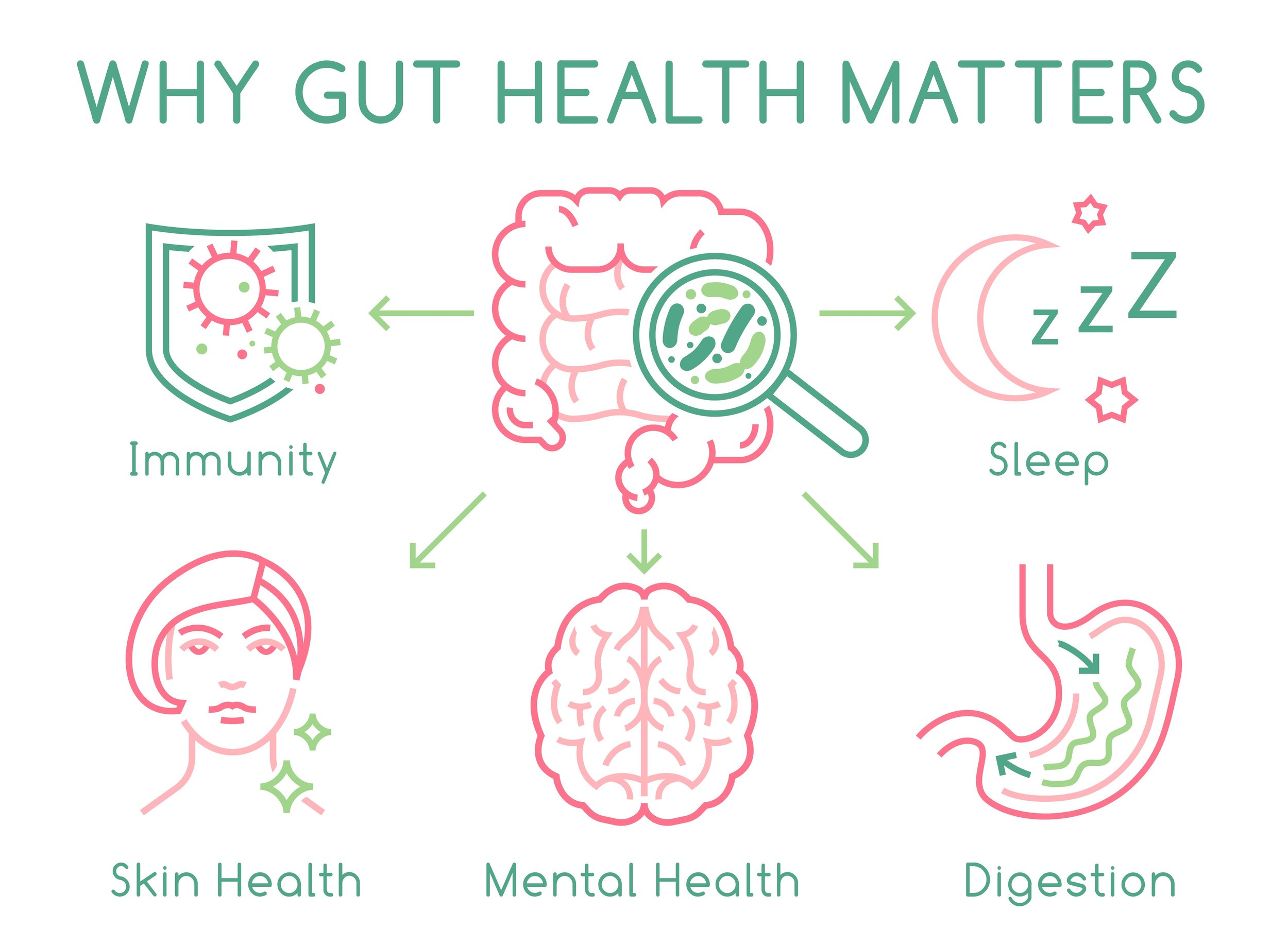Sleep and Your Microbiome
Circadian rhythms are patterns of brainwave activity, hormones, cell regeneration and biological activities that occur on a daily basis. And sleeping well at the right time each day is essential to keeping the circadian rhythms functioning properly so we function properly, too.
The fact that our microbes are actually the regulators of this function and that our sleep patterns are an issue for our microbes should not surprise us. They need us to rest so they can do their thing while we sleep.
You may already know the importance of sleep to support your overall physical and mental wellbeing. Did you also know a healthy microbiome supports a better sleep? Not having the right microbes may be lowering your metabolic rate while you sleep and this can lead to issues such as weight gain. This is based on an animal study at UI Carver College of Medicine which found that lowering beneficial bacteria resulted in a lower metabolic rate both when resting and when asleep, causing weight gain.
Sleep can be improved by addressing gut health and gut health can be improved by better sleep. Let’s look at strategies that can help you do both.
Help reset your circadian rhythm
Go to bed at a set time and get up at the same time as much as possible
Avoid bright lights near bedtime
Avoid eating or exercising close to bedtime
Sleep in dark space – light tricks the body into thinking it is time to be awake.
Develop a relaxing routine before bed whether it is taking a bath, deep breathing exercises or having a nice cup of herbal tea such as chamomile or valerian.
Diet plays a role in both balancing your circadian rhythm and the health of your microbiome.
In another animal study, both high fat and low fat diets played a negative role in the function of circadian rhythms and they also altered the microbiome. Short-chain fatty acid production was lower, especially butyrate which is essential for circadian rhythm function. Butyrate is produced by beneficial colon bacteria from resistant starch found in complex carbohydrates such as potatoes, wheat, rice, legumes and sweet potatoes.
Improve your gut health
Eat prebiotic foods, especially those with resistant starch (potatoes, wheat, rice, legumes and sweet potatoes).
Take the highest quality probiotics you can afford. These can help melatonin levels which, in turn, help restore circadian rhythms.
Butyrate supplements are an option if you are unsure as to how well you are producing it. Talk to a health professional for advice on the best option.
Taking care of your microbiome results in a higher level of both physical and mental wellbeing.
Understanding that lack of sleep can be caused by dysbiosis (an imbalance in your microbiome) is another reason we should be focused on improving our gut health.
References
Circadian Disorganization Alters Intestinal Microbiota, Robin M. Voigt,1 et al, PLoS One. 2014; 9(5): e97500.
Effects of diurnal variation of gut microbes and high-fat feeding on host circadian clock function and metabolism. Leone V1, et al, Cell Host Microbe. 2015 May 13;17(5):681-9.
Melatonin regulation as a possible mechanism for probiotic (VSL#3) in irritable bowel syndrome: a randomized double-blinded placebo study, Wong RK1 et al, Dig Dis Sci. 2015 Jan;60(1):186-94.
Disclaimer:
The information provided in this blog is intended for your general knowledge only and is not a substitute for medical advice or treatment for specific medical conditions. None of our services are used to diagnose or treat any health problem or disease. We do not provide medical advice. You should seek prompt medical care for any specific health issues by consulting your physician. Any information we have provided here should not be used in place of a consultation with a health care provider.




